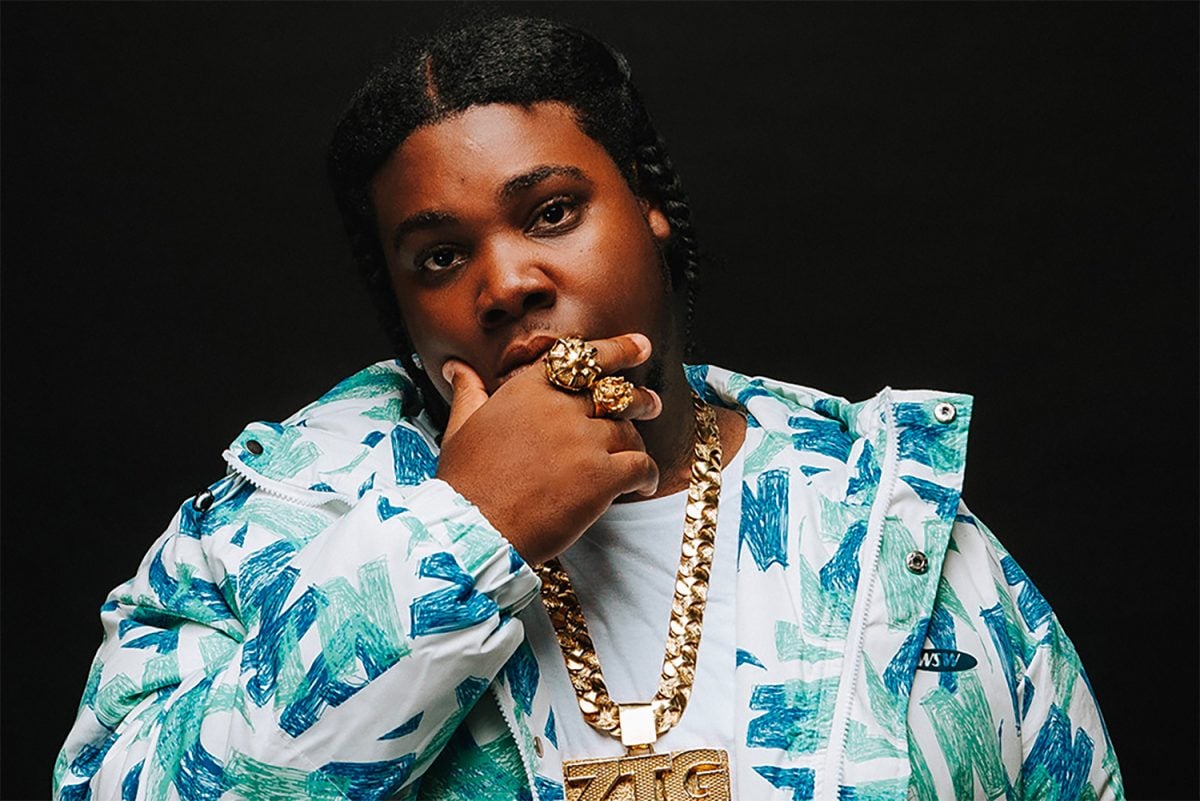Byron Messia On ‘Talibans’ And His Meteoric Rise In Music

Though originally born in Jamaica, Byron Messia was moved to St. Kitts and Nevis at two months old and has lived there since. His inclination to become a Dancehall artist, however, had little to do with that connection and more so to do with prompts from his high school friends, who would play Masicka almost constantly on their Bluetooth speakers after school.
Now a few years removed from those carefree moments, Messia stands atop Spotify’s ‘Best in New and Current Dancehall’ with his scorching hot single, Talibans. In a recent interview with Dash Radio, the Ztekk Records artist spoke about his meteoric rise, vision for the future, and the gritty new track, which is one of the most streamed Dancehall songs released this year.
“It’s more of a warning song,” Messia explained to host Maiwand.
“It’s not a crime organization song, it’s more like telling somebody ‘If you want, we can get down like how di people dem in Afghanistan get down’ song.”
Up to May 17, just four months after its release, Talibans stood somewhere around 10 million views on YouTube. Now, less than a week later, that number has almost doubled, with the Ztekk Records and EJ Fya-produced track at 17.5 million views.
Despite Messia’s euphemistic reference to the track as a ‘warning song,’ it more accurately checks the boxes of a typical badman anthem. Its accompanying music video, which features a cameo from Jamaican starlet Jada Kingdom, referenced in the song’s second verse (‘AK shake like a Jada Kingdom’), does a little more than warn. Guns abound in the Ty Lott and Neatz Films-directed video, and a murder is even simulated as the track approaches its end.
Despite the shocking imagery and the song’s violent content, a catchy beat, masterfully executed melodies, and well-timed lyrics mask the hit record, making it Messia’s biggest to date. It has even earned the budding star his own billboards in the UK.
“This is something I always dreamed of as a kid. Mi feel like majority of people ‘roun di world a hear mi music now,” he said of the now growing worldwide recognition.
Curiously, when quizzed about the countries he gets the most love from, Jamaica, perhaps by coincidence, was the fourth to be mentioned behind St. Kitts and Nevis, Trinidad and Grenada, followed by Barbados.
Even so, Messia, whose real name is Dylan Byron, continues to build his Jamaican bridges. Recently, he was featured on an Instagram live session with Dancehall star Popcaan and earlier this year, in April, Messia made an appearance at the Wi Fete Soca Party in Sabina Park. He had joined Valiant on stage, who had previously performed before the Soca crowd with Stalk Ashley.
Dancehall has obviously been a rising tide in the MOCA singer’s life, but, as he explained, Dancehall isn’t exactly his mission. He intends to pioneer his own subgenre, and he’s calling it Dance-Soul.
“I’m trying to run with a new wave – a new sound, and I’m trying to label it as ‘Dance-Soul’, so it’s a mixture of that Soul feeling and Dancehall.”
All but confirming that he may have a project brewing with Rodd Wave, Messia disclosed that he has been contacted by Bobby Shmurda, and has even been given the nod by Burna Boy, among a few other unnamed mainstream artists. He also hinted that his newest album, Famous, “will have a different sound”, and will likely feature a few American artists.
“I’m not trying to say much because I wanna hit the fans with the element of surprise,” he shared.
Despite his upcoming album being named Famous, Messia still doesn’t feel as though he’s made it. When quizzed about whether he has reached the peak of success, Messia responded with a vehement no.
“Nah, I feel like we have way more to do and much further to go,” he told Maiwand.
After briefly explaining that he is a bit of a recluse, Messia’s passion noticeably rose when the conversation veered from music to mental health. Having earlier in the interview explained that music was his therapy, he became passionate – and serious, when responding to Maiwand’s question about whether or not he actually had a therapist.
“I’m gonna be really honest with you. The one therapist I have in this world – his name is Chronic Law,” Messia revealed. “Oh my god man, that’s one of my biggest therapists in this world.”
The host, who was unfamiliar with Chronic Law, asked Messia whether he was a friend.
“You could say he’s my homeboy, but he’s also an artist from Jamaica as well,” Messia clarified.
Messia is eyeing the Grammys, but before that, he first has to overcome the daunting task of topping Talibans’ success. He believes he can do it, but Talibans has never faded from view, even as he continues his attempts to outdo it.
He explained: “Once you create something, you can create more. So, yeah, we’ve gotta find something, you know? It’s a blessing – because it pushes me to work 10 times harder.” He added that: “So, every day I wake up and I’m like, yeah, gotta go.”
As testament to his confidence that he can top Talibans, Messia revealed that the track, for all its success, took the bare minimum effort from him. “In the making of Taliban, it wasn’t even something serious. I never wrote down the lyrics for Taliban. It’s based on pure inside jokes,” he said, referencing his Jada Kingdom line.
